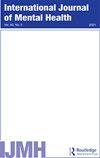心理健康护理的障碍和促进因素:巴基斯坦的系统综述
IF 1.4
Q3 PSYCHOLOGY, CLINICAL
引用次数: 5
摘要
摘要有充分的证据表明,巴基斯坦缺乏心理健康服务提供者、心理健康知识和心理健康服务利用不足。这项系统审查旨在评估巴基斯坦有心理健康问题的人、医疗保健提供者、护理人员或任何其他人群(如学生、教师)获得护理的障碍和/或便利因素的现有证据。通过9个电子数据库确定了13项已发表的关于巴基斯坦障碍和促进者的研究:Ovid MEDLINE、Ovid Embase、Ovid-Emcare、CINAHL plus、Proquest Central、PsycInfo、Scopus、Pubmed和ScienceDirect。专题分析显示,促进获得心理健康服务的因素是对心理健康服务有效性的信任和对问题严重性的认识。然而,阻碍获得治疗的因素包括经济问题/限制、个人问题/其他优先事项、污名、心理健康知识不足、以前治疗的副作用/不满、时间和距离限制、对传统/宗教治疗师的依赖以及缺乏社会(即家庭和同龄人)支持/鼓励。研究结果表明,有必要减少寻求心理健康服务的障碍,并加强其促进者。为了改善寻求帮助的情况,战略的重点应该是提高心理健康素养,降低耻辱感,并增加对心理健康服务有效性的信任。康复的意义关于这个话题我们知道些什么?巴基斯坦是一个发展中国家,缺乏关于心理健康及其相关性的实证证据,心理健康服务仅限于教学医院的精神科或私人诊所。在人口占60%的农村地区,精神科医生稀缺,有必要认识到促进者,减少合理心理健康护理的障碍至关重要。论文补充道:促进获得心理健康服务的因素是对心理健康服务有效性的信任和对问题严重性的认识。阻碍获得治疗的因素包括经济问题/限制、个人问题/其他优先事项、耻辱感、心理健康知识不足、以前治疗的副作用/不满、时间和距离限制、对传统/宗教治疗师的依赖以及缺乏社会(即家庭和同龄人)支持/鼓励。这种认识有助于为有心理健康问题的人设计适当的计划和政策。有必要提高公众对寻求心理健康服务的重要性的认识,以及设计、测试和执行策略,以减少与心理健康问题相关的自我和社会污名。本文章由计算机程序翻译,如有差异,请以英文原文为准。
Barriers and facilitators to mental health care: A systematic review in Pakistan
Abstract It is well documented that there is a shortage of mental health care providers, mental health literacy, and underutilization of mental health services in Pakistan. This systematic review aimed to assess the available evidence on factors hindering and/or facilitating access to care among people with mental health issues, health care providers, carers, or any other population group (e.g., students, teachers) in Pakistan. Thirteen published studies of barriers and facilitators in Pakistan were identified through nine electronic databases: Ovid MEDLINE, Ovid Embase, Ovid Emcare, CINAHL plus, Proquest Central, PsycInfo, Scopus, Pubmed, and ScienceDirect. Thematic analysis revealed that factors facilitating access to mental health services were trust in the effectiveness of mental health services and acknowledging the seriousness of the problem. However, factors hindering the access were financial issues/constraints, personal issues/other priorities, stigma, low mental health knowledge, side-effects/dissatisfaction from previous treatments, time and distance constraints, reliance on traditional/religious healers, and lack of social (i.e., family and peers) support/encouragement. Findings suggest the need for reducing barriers to and enhancing facilitators of seeking mental health services. To improve help-seeking, the focus of strategies should be on enhancing mental health literacy, lowering stigma, and increasing trust in mental health services' effectiveness. Implications of rehabilitation What is known about this topic? There is a scarcity of empirical evidence on mental health and its correlates in Pakistan-a developing country and mental health services are restricted to psychiatry departments of teaching hospitals or in privately run clinics. There is a scarcity of psychiatrists in rural areas having 60% population and there is a need for recognizing facilitators and reducing barriers to reasonable mental health care is crucial. What the paper adds: Factors facilitating access to mental health services were trust in the effectiveness of mental health services and acknowledging the seriousness of the problem. Factors hindering the access were financial issues/constraints, personal issues/other priorities, stigma, low mental health knowledge, side-effects/dissatisfaction from previous treatments, time and distance constraints, reliance on traditional/religious healers, and lack of social (i.e., family and peers) support/encouragement. This recognition can help to design adequate programs and policies for people with mental health issues. There is a need to raise public awareness of the importance of seeking mental health services as well as for designing, testing, and executing strategies to reduce self and social stigma related to mental health problems.
求助全文
通过发布文献求助,成功后即可免费获取论文全文。
去求助
来源期刊

INTERNATIONAL JOURNAL OF MENTAL HEALTH
PSYCHOLOGY, CLINICAL-
CiteScore
3.80
自引率
20.00%
发文量
32
期刊介绍:
The official journal of the World Association for Psychosocial Rehabilitation, the International Journal of Mental Health features in-depth articles on research, clinical practice, and the organization and delivery of mental health services around the world. Covering both developed and developing countries, it provides vital information on important new ideas and trends in community mental health, social psychiatry, psychiatric epidemiology, prevention, treatment, and psychosocial rehabilitation.
 求助内容:
求助内容: 应助结果提醒方式:
应助结果提醒方式:


